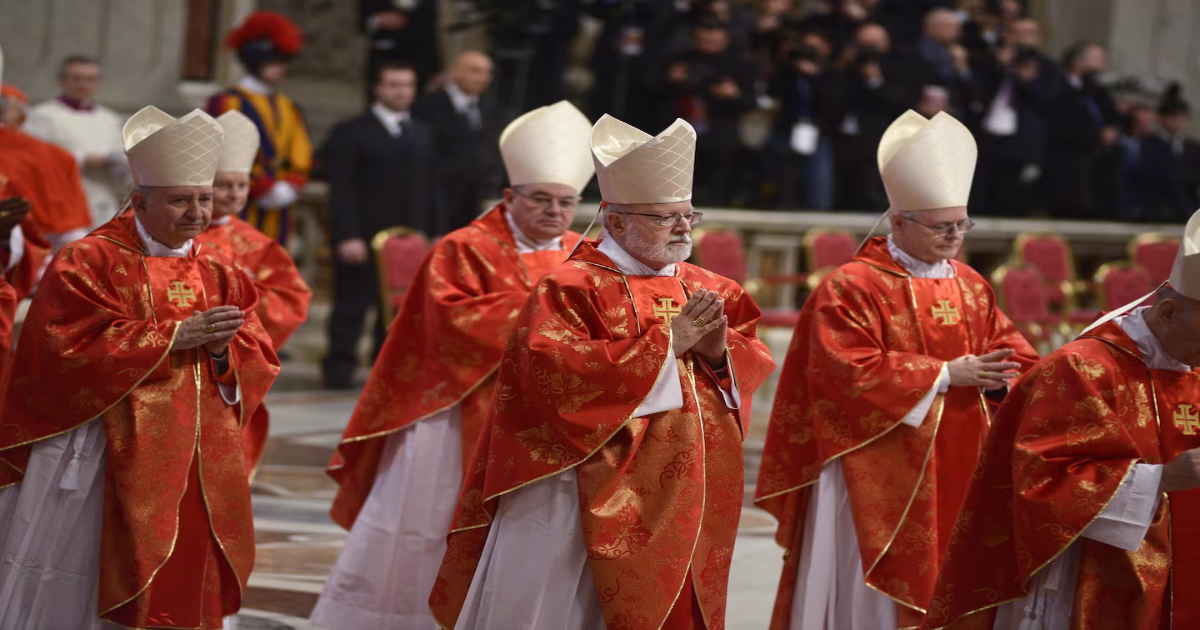A. I watched on television live the moment when [Francis] stepped onto the balcony and revealed himself to the world. And just before the winning candidate steps onto the balcony, the huge windows on either side overlooking St. Peter’s Square filled with the faces of the cardinal electors come to see the spectacle. And the camera pounded along the faces of these elderly men — crafty, benign, cunning — and I thought, oh, my God, that’s the old Roman Senate. I started researching it and within an hour or two it was obvious that this is a very sophisticated election. You have two ballots in the morning and two in the afternoon, and after counting, the ballot papers are collected, [tallied], and burned. They break for lunch and they break in the evening, and that’s when there is inevitably discussion, politicking in the dining hall, in the corridors, in the garden.
Q. From your point of view as a novelist, what makes the Vatican such a rich setting?
A. I was a political journalist, and most of my novels revolve around politics and power in some way. If you’re interested in politics, [the papal conclave] is the ultimate election. It’s for God’s representative on earth to preside over 1.25 billion Catholics worldwide. These powerful figures are locked away in one of the most extraordinary artistic gems of the Renaissance. They’re not allowed to speak to the outside world and they have to stay there for days until they get a two-thirds majority, and that is just the most wonderful drama in itself.
Q. Are you Catholic yourself?
A. No. I came at this purely from a secular point of view of someone who is interested in institutions, how they work, and the power plays within them. Having said that, I am interested in faith. The great British cardinal Basil Hume, at the end of his life, had a crisis of faith. He lost his faith, he couldn’t pray. And I thought that was fascinating, and so I had the idea of writing it from the point of view of a senior cardinal who’s actually losing his faith, finds it difficult to pray, and then he’s landed with having to organize the whole conclave as the dean of the College of Cardinals, and so that gave me the central character.
Q. The adaptation of your novel “Conclave” racked up critical acclaim and award nominations. How do you feel about the movie?
A. I thought it was tremendous and it’s very close to the book — actually, I think probably the closest, most faithful adaptation of any of my books that have transferred to the screen. They brought so much talent to it [in terms of] direction, cinematography, acting. The essence, the spirit of the novel is very much there.
Q. Have you faced criticism from Catholics for writing about such a sacred, secret process?
A. Yes, quite a bit! Inevitably if you write about something like this, you’re going to arouse criticism. Particularly in the states. Megyn Kelly, who used to be on Fox, attacked it, she said it was disgusting. There are plenty of critical voices; yet quite a few Catholics liked it as well. I ran the book past the British cardinal, now deceased, Cardinal Cormac Murphy-O’Connor, and he said I got it pretty right, actually. Despite the criticism, I think it’s a very kind book about the Catholic Church. It’s written from within and the central character is rather heroic and decent, and I think that is a point worth making. I mean, they’re flawed people, but they’re written with sympathy, I hope.
Q. The world is going through so much political, cultural, and environmental upheaval. How much power do you think the next pope will have to navigate these perilous times?
A. I think they have quite a lot of power. The spiritual leader of so many people does have an authoritative voice, particularly if they are interpreting literally Christ’s teaching in the Gospels. When I started writing the book, I read the Gospels and was struck by what a revolutionary message it is about the poor, and welcoming strangers, especially given what’s happening across the world, in your country and in Europe. Your vice president came here and lectured the Europeans on Judeo-Christian values, but actually those values are pretty revolutionary about the rich and the poor and welcoming strangers into your land. I think that’s a lot of room for conflict in the coming years, and it will be interesting to see when there’s a more energetic pope. There’s potential here for an interesting debate.
Who knows what the future holds, but the purpose of the church is to stand for certain eternal values, Christian values, which are not necessarily the same as those of Elon Musk and Donald Trump and AfD in Germany. We will see.
This interview has been edited and condensed.
Kate Tuttle edits the Globe’s books section.
Kate Tuttle, a freelance writer and critic, can be reached at [email protected].
